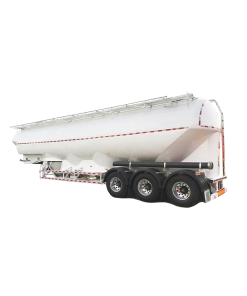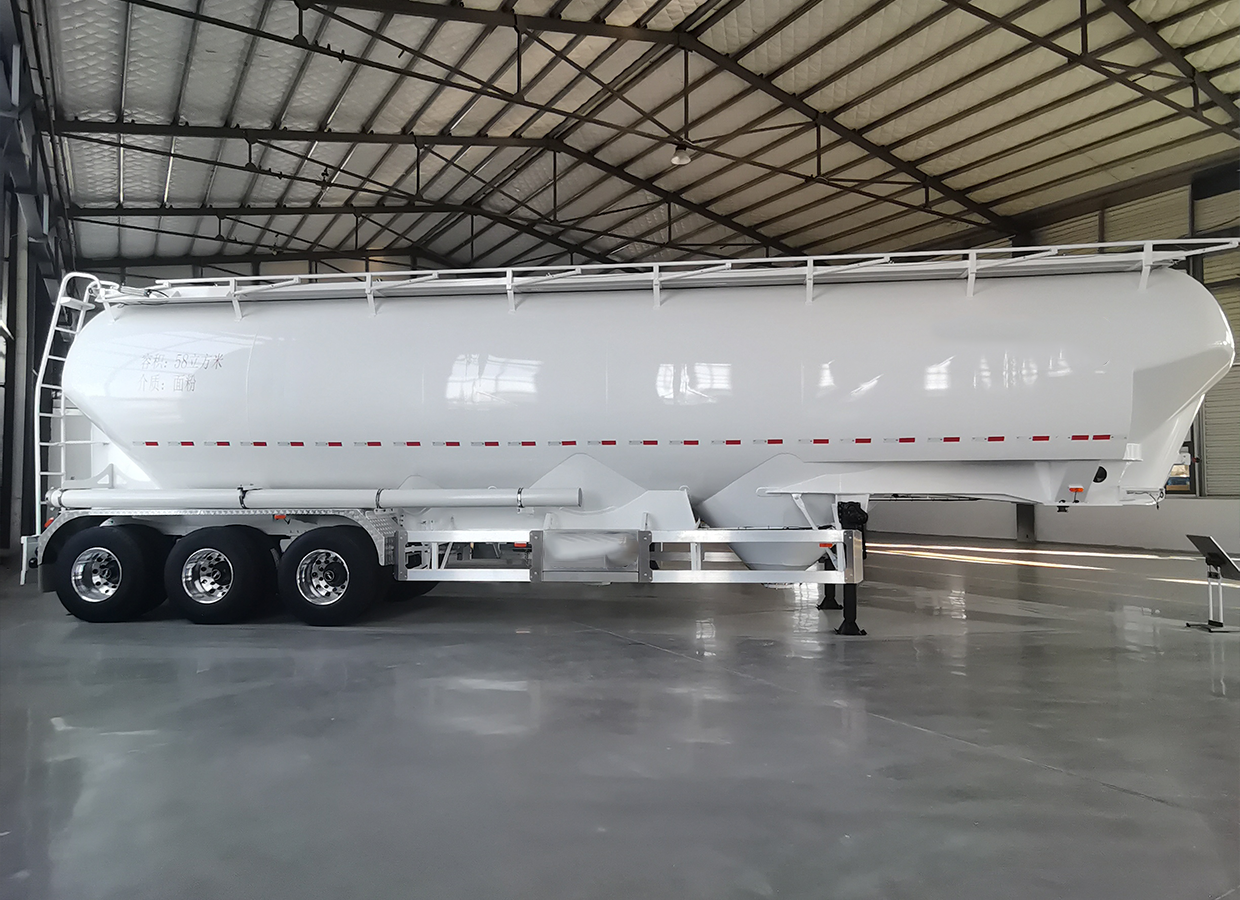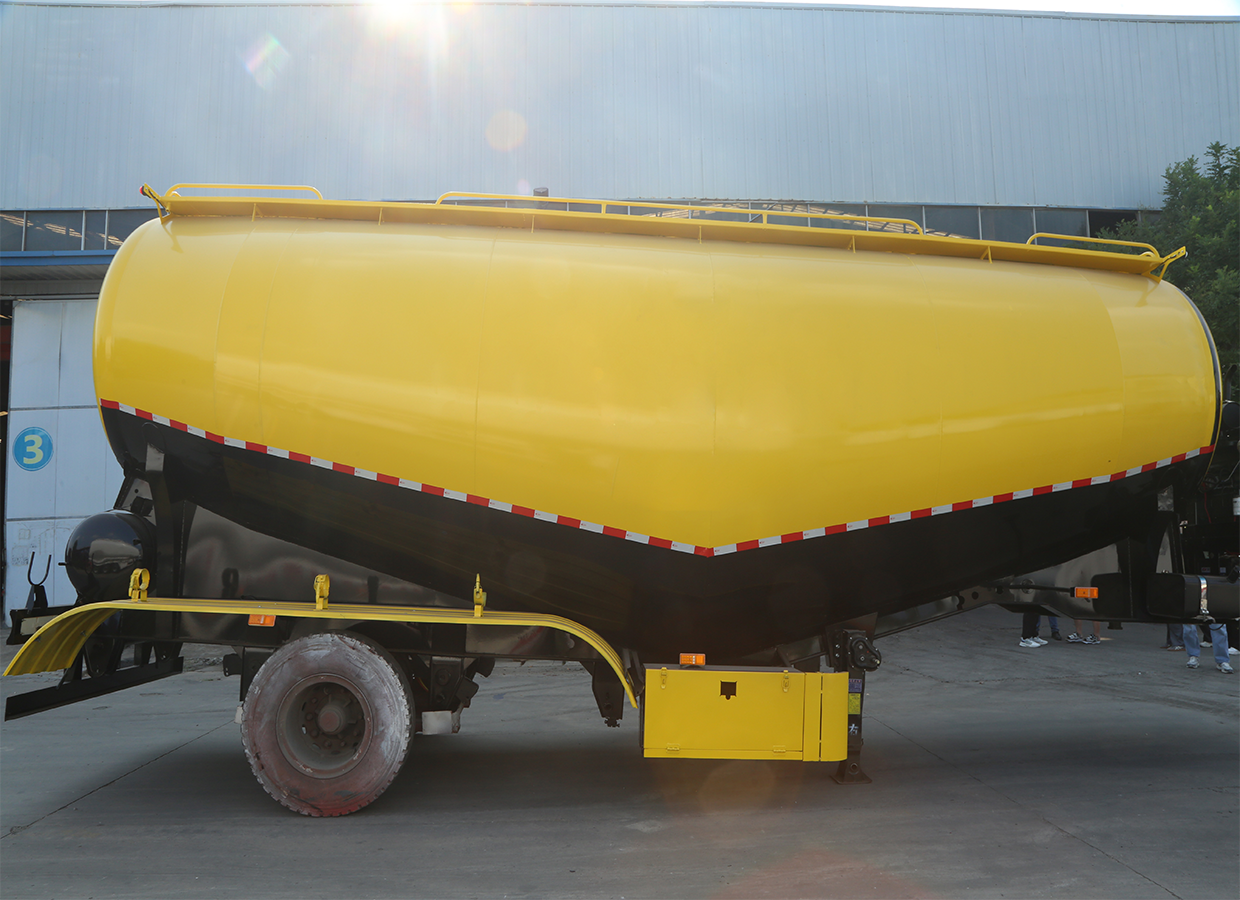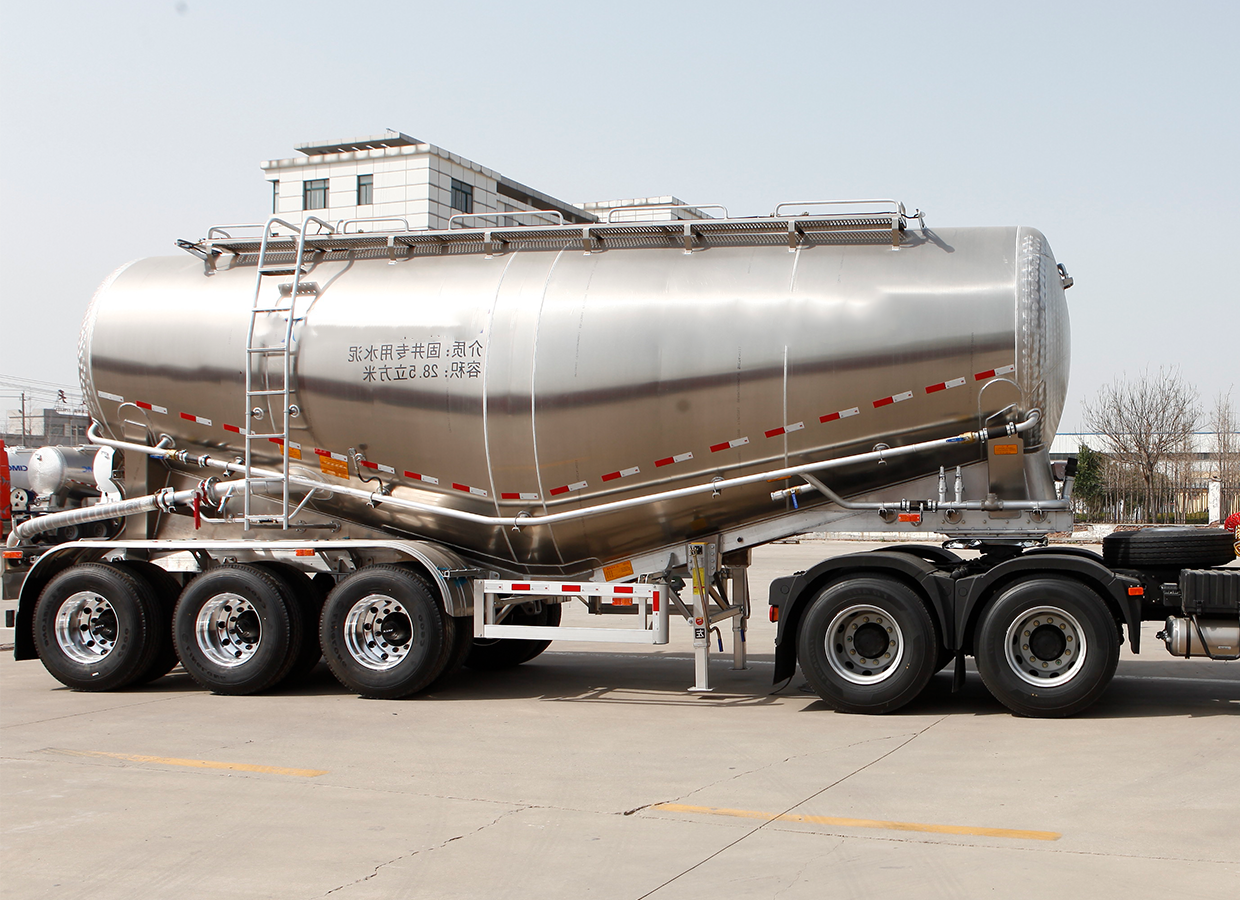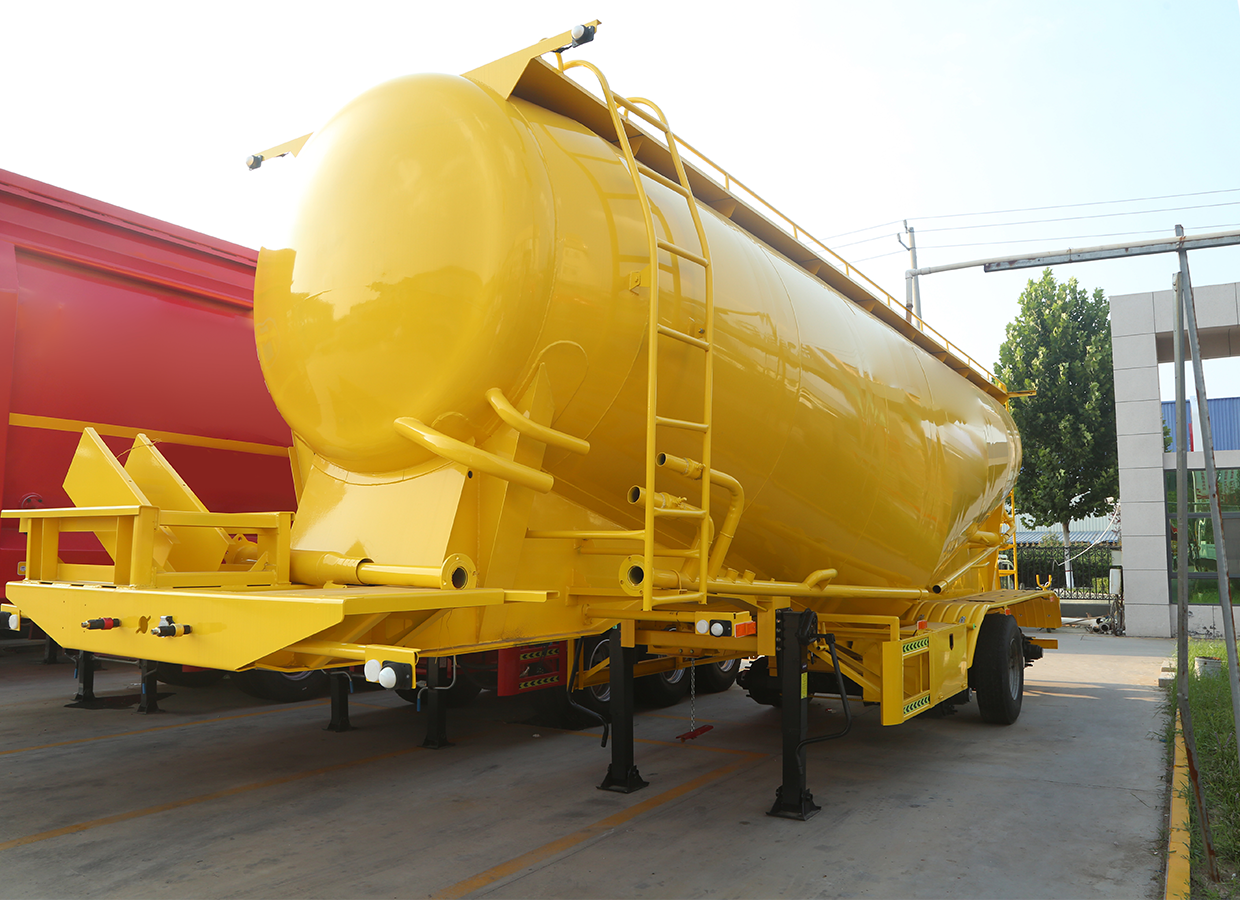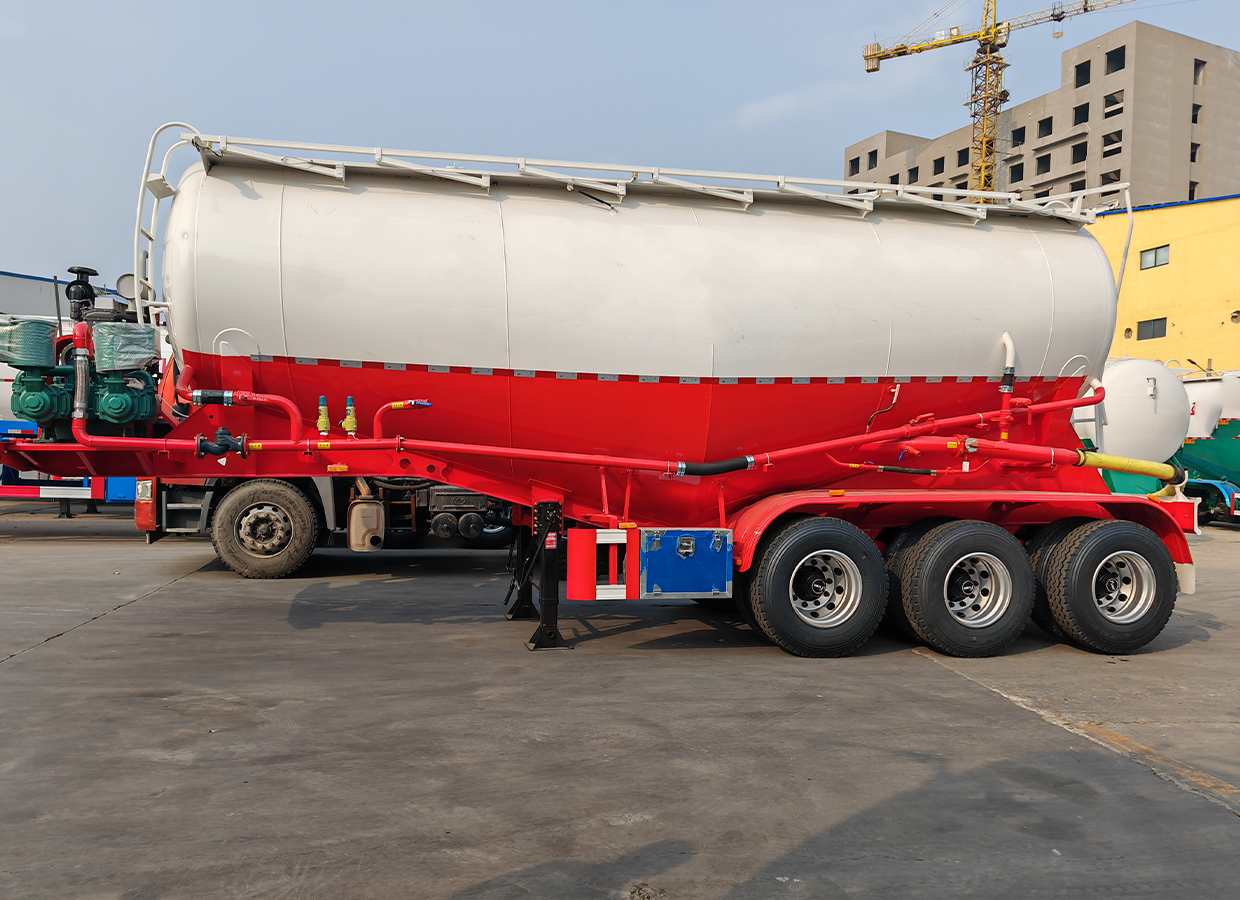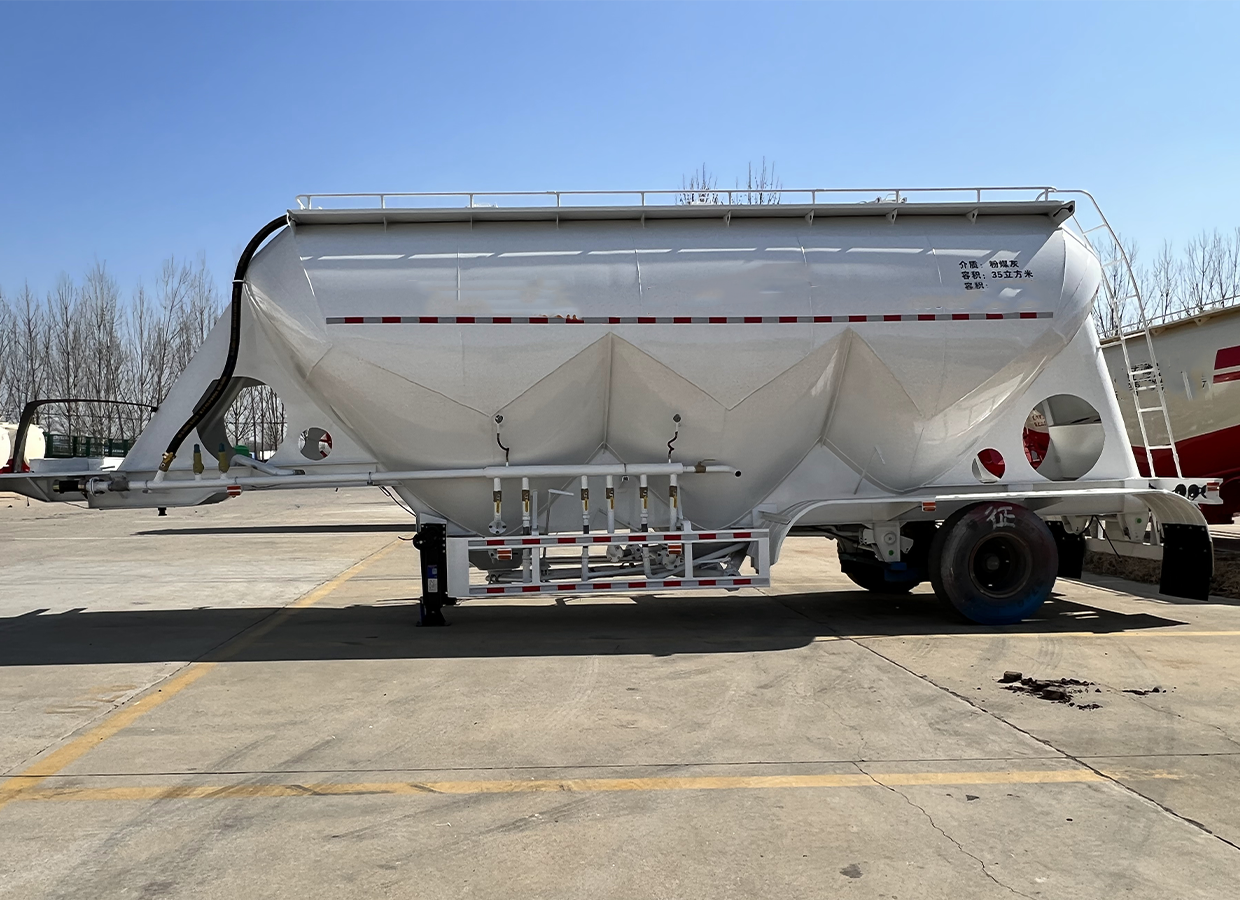Hygiene And Quality Assurance
Flour tank trucks usually have excellent sealing properties, ensuring that the tank is completely airtight. This helps prevent moisture, dust, impurities and other external contaminants from entering the tank, thus keeping the flour pure. In addition, the internal construction of these tank cars is usually made of food-grade stainless steel or other corrosion-resistant food-grade materials. These materials do not react chemically with flour, do not release harmful substances, and are easy to clean and maintain.
Precise Unloading
Flour tank trucks are often equipped with an unloading control system that can be precisely controlled by the driver or operator. This means that the speed and amount of unloading can be controlled as needed to suit different situations.
Efficiency
Flour tankers can often be loaded and unloaded faster than traditional bulk transportation methods. This reduces loading and unloading times and costs, helping to improve overall logistics efficiency.
Compliance With Regulations
Flour tank trucks generally comply with relevant food safety regulations, which set out standards and hygiene requirements for food transportation. This includes ensuring that flour is not contaminated or exposed to hazardous substances during transportation.
Diversified Transportation
Flour tank trucks are not only suitable for flour, but also can be used to transport other bulk food raw materials, such as sugar powder, starch, grains, wheat bran, corn flour, etc. This versatility makes these vehicles suitable for a variety of food production processes.



